Harnessing the Role of AI in Organ Transport Logistics for Enhanced Efficiency
AI is transforming organ transport logistics by making the entire process faster, more efficient, and reliable. With the help of AI, real-time data analysis and optimized routing ensure that organs reach their destinations in perfect condition. This not only reduces wastage but also improves the success rates of transplants. In this article, we will explore the role of AI in organ transport logistics, enhancing each step of organ transport and covering areas such as route optimization, real-time monitoring, and predictive analytics.
Key Takeaways
Efficient organ transport logistics are essential for successful transplantation, minimizing organ wastage and ensuring timely delivery within critical viability windows.
AI technologies enhance organ transport by optimizing logistics, improving route efficiency, and enabling real-time monitoring, ultimately leading to better patient outcomes.
Effective coordination among stakeholders, facilitated by AI-driven communication and scheduling systems, is vital for reducing delays and enhancing the overall efficiency of organ transplantation.
The Importance of Organ Transport Logistics
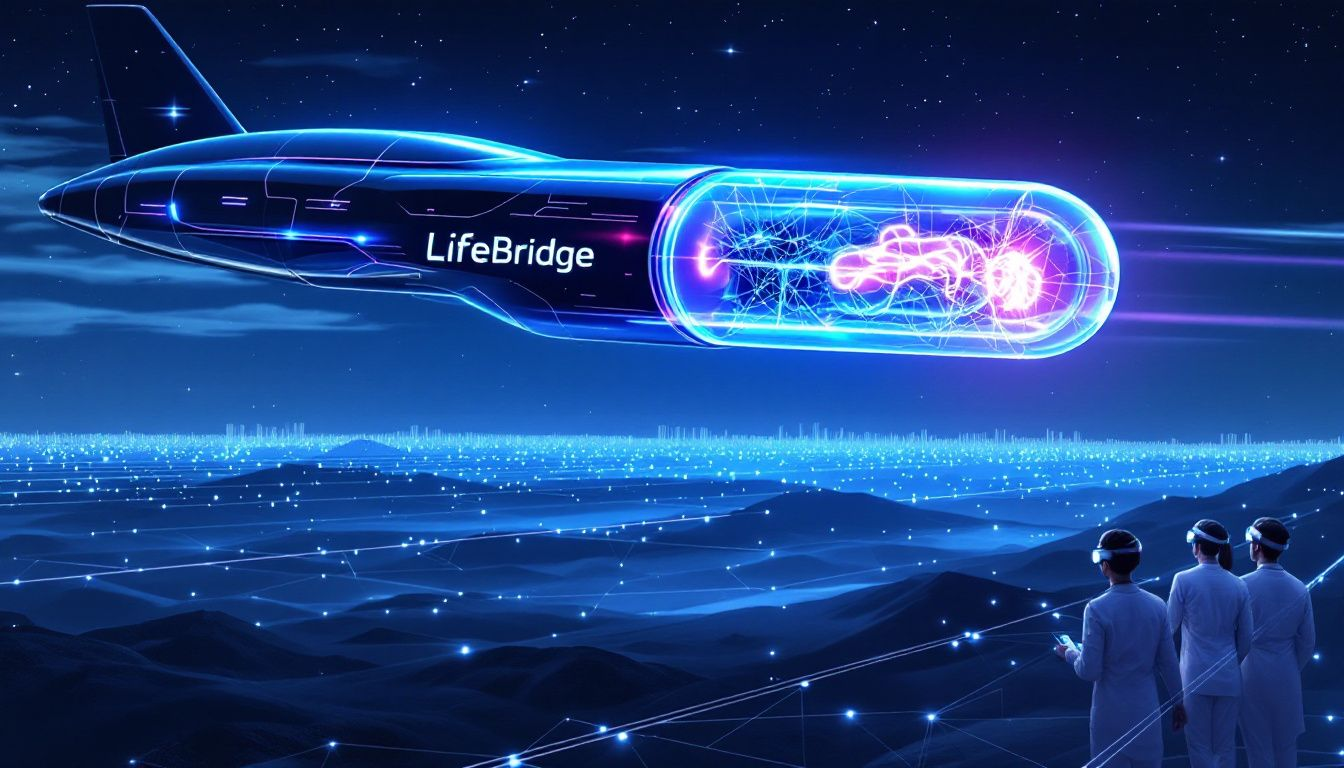
Efficient logistics are the backbone of successful solid organ transplantation, ensuring that transplants are both timely and successful. The process requires precise coordination and speed, given the short viability windows of organs once procured. Any delay can significantly reduce the chances of a successful transplant, impacting patient outcomes.
Logistical efficiencies go beyond speed; they are vital in reducing organ wastage. When organs are transported quickly and efficiently, the risk of them becoming unusable decreases dramatically. This directly translates to better patient outcomes, as more organs are available for successful transplantation.
Timely and coordinated efforts are fundamental. Every second counts due to the short viability windows of organs. Transport teams, hospitals, and organ procurement organizations (OPOs) must work together to ensure organs reach their destinations within critical timeframes for successful transplantation.
Effective coordination among all parties is paramount. Each player in this intricate process must work in harmony to ensure the organ’s journey is smooth and timely. Proper coordination minimizes delays, maximizing the chances of successful transplantation and significantly improving patient outcomes.
Challenges in Current Organ Transport Systems
The current organ transport systems are riddled with logistical challenges that can impede the timely and efficient delivery of organs. A primary issue is the inadequate coordination among transport teams and donor hospitals. This lack of coordination can lead to significant delays, making it difficult to ensure organs are transported within their viability windows.
Organ shortages, post-transplant complications, and inefficient allocation processes are common hurdles that further strain the system. These issues delay transport and affect overall transplant outcomes, preventing timely allocation of organs to suitable recipients and contributing to delayed graft function.
External factors like flight cancellations, traffic congestion, and poor communication can cause transport delays. Such disruptions can jeopardize the viability of organs, turning a well-planned logistics operation into a race against time.
Systemic inefficiencies such as low donor registration rates and mismanaged transportation logistics lead to missed transplant opportunities. When organs are not transported efficiently, the chances of them being wasted increase, resulting in fewer successful transplants and more patients remaining on waitlists.
Overcoming these challenges requires optimized logistics, advanced matching algorithms, and improved public education. Addressing these systemic inefficiencies can significantly enhance the overall efficiency of the organ transplantation process, ensuring more lives are saved through successful transplants.
Impact on Patient Outcomes
The impact of logistics on patient outcomes in organ transplantation cannot be overstated. AI applications have significantly improved transplantation efficiency and outcomes, especially in kidney and liver transplants. AI ensures organs reach their destinations in optimal condition, improving transplant success rates.
Analyzing historical transport data, AI has improved transplant efficiency and success rates through optimized logistics. Quicker response times have reduced the risk of organ wastage and ensured timely deliveries.
AI can optimize liver transplant logistics, leading to quicker response times and improved patient outcomes. Minimizing organ wastage and ensuring timely transplants are crucial benefits of this optimization.
Transparency in AI systems builds public trust. Transparent AI systems enhance public confidence in organ donation and transplantation, encouraging more participation.
AI-Powered Optimization in Organ Transport
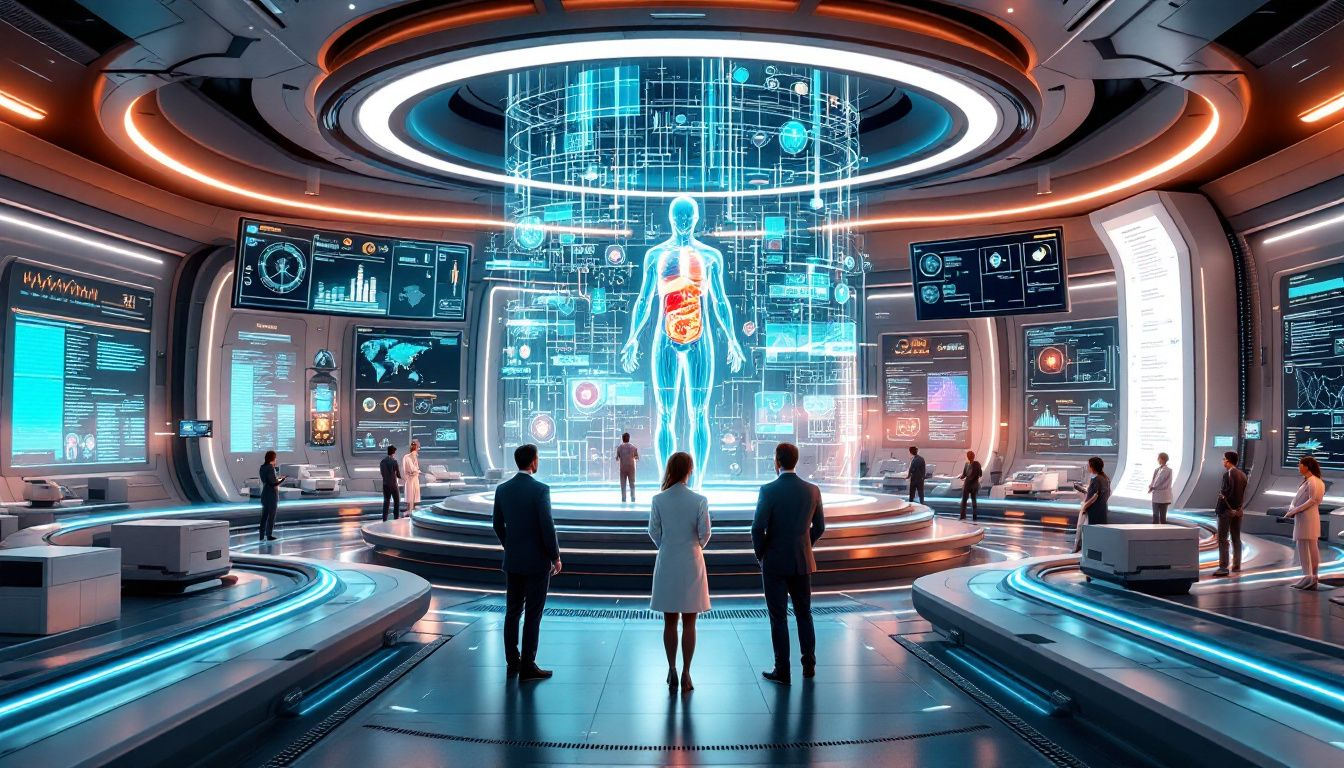
Artificial Intelligence (AI) is poised to revolutionize organ transport logistics. By leveraging advanced algorithms and real-time data processing, AI can significantly enhance the efficiency of organ transport logistics. This transformation addresses persistent challenges like organ shortages and allocation inefficiencies in transplantation.
AI technologies can revolutionize organ selection and improve matching accuracy, optimizing allocation. Machine learning algorithms excel at analyzing vast datasets to predict transplantation and graft outcomes, improving transplant results.
Integrating AI in organ transport logistics entails holistic improvement beyond faster deliveries, enhancing the entire allocation process. AI ensures organs are transported efficiently and allocated to suitable recipients, enhancing overall success rates.
Route Optimization Algorithms
AI algorithms have the potential to drastically improve organ transport by optimizing routes to decrease travel duration and improve the condition of organs upon arrival. These algorithms calculate the most efficient routes, ensuring organs are transported quickly and safely, reducing deterioration risk.
Optimized routing is crucial for successful transplants. AI algorithms assess factors like traffic patterns, weather conditions, and transportation options to determine the best route. This routing precision maintains organ viability until it reaches the recipient.
Autonomous vehicles in organ transport promise reduced transit times and improved delivery efficiency. Guided by AI, autonomous vehicles navigate traffic efficiently and maintain consistent speeds, ensuring timely deliveries.
AI and autonomous vehicle collaboration could usher in optimized routing and reduced delays in organ transport. This synergy could revolutionize organ transport logistics, making it more reliable and efficient.
Predictive Analytics for Transport Timing
AI-driven predictive analytics identify potential disruptions in transport schedules, allowing for timely adjustments to minimize delays. AI forecasts issues before they arise, ensuring organs are transported within critical viability windows.
AI-driven predictive analytics enhance timing accuracy in liver transplantation, ensuring organs arrive in optimal condition. Precise timing maintains organ viability and improves transplant outcomes.
Machine learning models predict five-year post-transplant patient survival, informing clinical decisions in kidney transplantation and kidney transplants. These models analyze patient health data and transport conditions to provide accurate kidney graft survival predictions.
AI predictive models forecast post-transplant complications, enabling proactive patient care management. Addressing potential issues before they escalate improves overall patient outcomes.
Real-Time Monitoring Systems
AI-powered real-time monitoring systems continuously track transport conditions, maintaining organs at optimal temperatures. These systems provide constant oversight, alerting teams to any deviations from required protocols.
AI monitoring solutions automatically notify teams of anomalies during transit, enabling immediate corrective actions. Real-time intervention is vital for maintaining organ integrity during transport.
Maintaining optimal temperatures during transport prevents deterioration and maximizes viability. Real-time monitoring ensures organs remain within required temperature ranges throughout the journey.
Compliance with handling protocols ensures the organ’s safety and effectiveness during transplantation. AI systems enforce strict adherence to protocols, safeguarding the organ’s condition from procurement to transplantation.
Did you know that you can get from Manhattan to JFK in under 5 minutes without driving?
Blade offers seamless helicopter transfers from our West 30th Street Lounge in Manhattan to JFK Airport in just 5 minutes from $195 per seat.
Skip the traffic and ditch the stress with Blade's year-round airport service.

Enhancing Coordination with AI
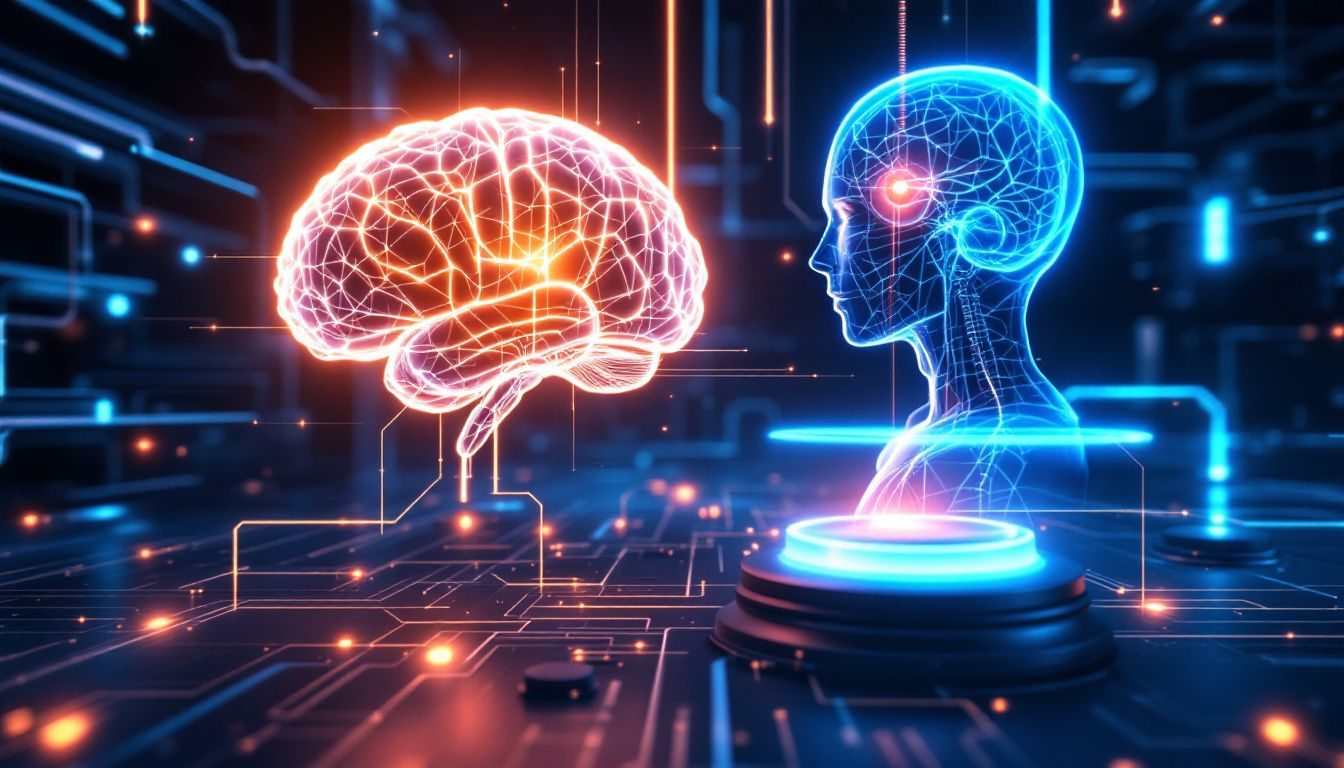
The complexity of organ transport logistics necessitates seamless coordination among various stakeholders. AI streamlines processes by integrating communication channels and providing real-time updates, enhancing how organ transport networks operate.
AI significantly improves communication among hospitals, transport teams, and OPOs, enhancing overall transport efficiency. Real-time updates from AI systems improve decision-making, ensuring timely and accurate organ delivery.
AI provides real-time information, facilitating better decision-making among medical teams. Improved coordination results in fewer delays and higher transplant success rates.
Enhancing communication and coordination with AI ensures a more efficient transport process, leading to better patient outcomes. This improvement is vital for saving lives and optimizing the use of available organs.
Integrated Communication Platforms
AI-enabled platforms facilitate real-time information sharing, significantly improving response times. These platforms ensure critical information is readily available, reducing misunderstandings and delays.
AI-driven platforms enable real-time sharing of critical information, minimizing delays and enhancing decision-making. Real-time access to information is crucial for maintaining organ viability and ensuring timely delivery.
AI-driven communication systems streamline coordination among all parties involved in organ logistics. These systems provide a centralized platform for information sharing, ensuring unified understanding.
Centralized platforms unify distributed teams, enabling effective logistics management and communication regardless of location. This unification is essential for smooth and efficient organ transport.
Automated Scheduling Systems
Automated systems use AI to manage transport schedules, minimizing human error and increasing operational efficiency. Automated scheduling ensures organs are transported within critical timeframes for successful transplantation.
AI reduces human error in logistics through automated scheduling, ensuring timely delivery and increasing operational effectiveness. Reducing errors is vital for maintaining organ viability and improving transplant outcomes.
AI-powered automated scheduling systems coordinate logistics efficiently, allowing for dynamic routing and timing adjustments. Dynamic adjustments address unexpected delays and ensure timely delivery.
AI scheduling achieves optimal resource allocation, managing transport logistics efficiently and effectively. Optimal resource allocation improves overall transplant efficiency and success.
Case Studies: AI in Action
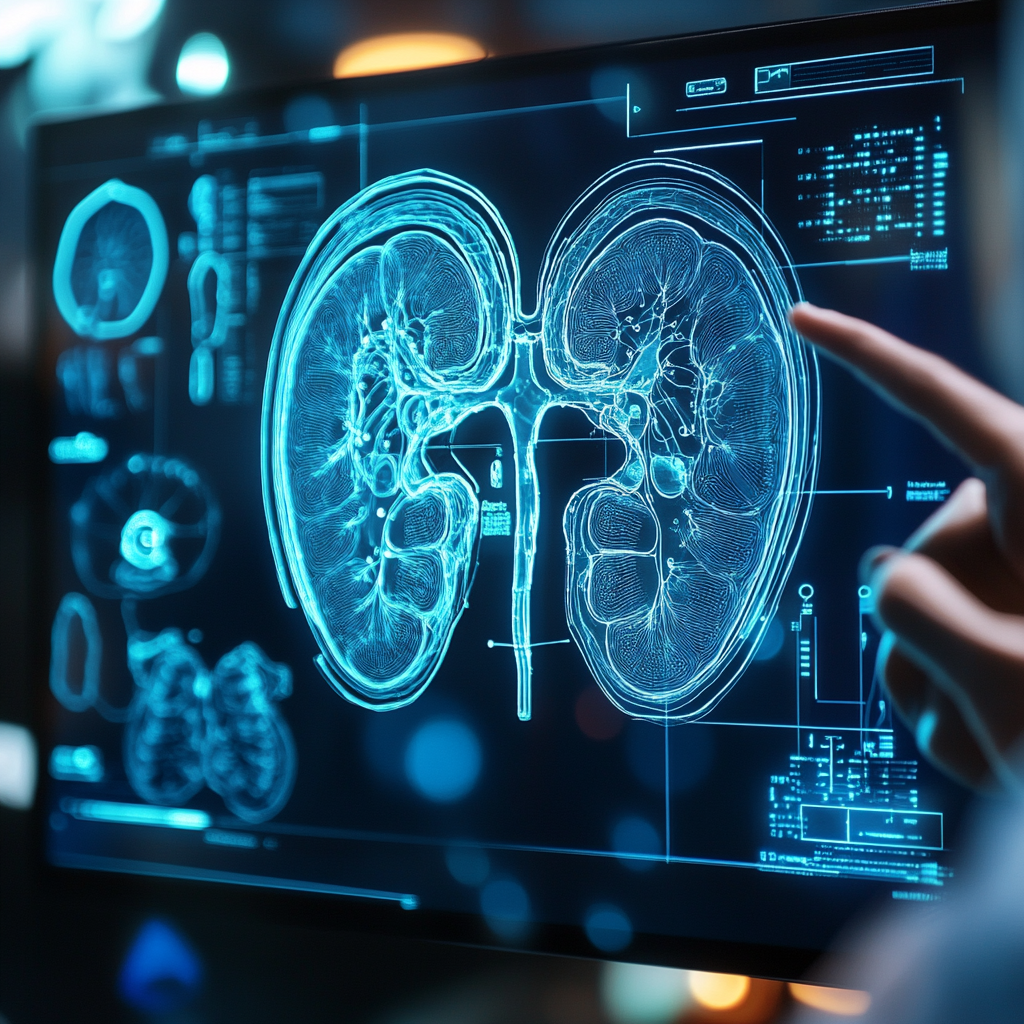
AI addresses numerous challenges in organ transplantation, enhancing pretransplant evaluation and predicting rejection and outcomes. AI’s real-world applications enhance decision-making. AI optimizes organ allocation and improves patient outcomes.
Innovative AI and machine learning applications enhance patient outcomes and decision-making. They also optimize organ allocation processes. Improvements are evident in kidney, liver, heart, and lung transplants.
AI’s optimization of organ allocation significantly advances transplantation. Allocating organs to suitable recipients, AI improves overall transplant success rates.
Research and case studies on kidney, liver, heart, and lung transplants highlight AI’s transformative potential in heart and lung transplantation logistics. These examples offer valuable insights into how AI can revolutionize the field and save lives.
Successful Implementation in Kidney Transplantation
AI optimizes kidney transplant logistics by addressing delays and inefficiencies, enhancing transplant outcomes. AI algorithms for route optimization have significantly reduced travel time, ensuring kidneys arrive in optimal condition for transplantation, thereby minimizing the risk of kidney allograft rejection.
Predictive analytics in AI can forecast potential delays in the organ transport process, allowing for timely adjustments to transport schedules. This proactive approach ensures that any potential issues are addressed before they impact the organ’s viability.
AI-driven real-time monitoring systems ensure that organs are transported under optimal conditions, adhering to required temperature and handling protocols. This adherence is crucial for maintaining the organ’s viability and increasing the chances of successful transplantation.
Enhanced coordination among various stakeholders is achieved through AI-enabled communication platforms, facilitating information sharing between hospitals, transport teams, and organ procurement organizations (OPOs). This improved coordination reduces delays and enhances the overall efficiency of organ transport logistics.
Innovations in Liver Transplant Transport
AI has been shown to reduce cold ischemia time in liver transplants, which is crucial for improving patient outcomes. By optimizing transportation logistics, AI ensures that livers are transported quickly and efficiently, minimizing the time they spend outside the body. Minimizing cold ischemia time during liver transport is essential for preserving organ viability.
AI algorithms can analyze various factors during transport to determine the best conditions for maintaining the liver’s viability. They can also analyze the quality of liver organs during transport, helping to determine their viability before transplantation. This analysis ensures that only the most viable organs are used for transplantation, improving overall patient outcomes.
The overall benefits of AI in liver transplant logistics are clear. Minimizing cold ischemia time using advanced cooling methods for organ transport is essential for preserving organ viability.
Did you know that you can get from Manhattan to JFK in under 5 minutes without driving?
Blade offers seamless helicopter transfers from our West 30th Street Lounge in Manhattan to JFK Airport in just 5 minutes from $195 per seat.
Skip the traffic and ditch the stress with Blade's year-round airport service.

Ethical Considerations and Data Privacy
As we integrate AI into organ transport logistics, addressing ethical considerations is crucial to ensure transparent and responsible use. The application of AI and machine learning in transplantation aims to improve the accuracy of organ allocation while recognizing the ethical and implementation challenges involved.
One of the primary challenges in applying AI to organ transplantation is the small sample sizes and lack of generalizability. These limitations can impact the effectiveness of AI models, making it essential to address these issues for broader adoption.
Ethical implementation and public education on how AI impacts organ donation can help alleviate fears surrounding its use. Building public trust is essential for the successful integration of AI in organ transport logistics.
By addressing these ethical considerations and ensuring transparency, we can foster a responsible and effective use of AI in organ transplantation. This approach will help maximize the benefits of AI while maintaining public confidence in the system.
Ensuring Transparency and Accountability
Ensuring accountability in AI-assisted donation protocols is essential to maintain confidence among stakeholders. Transparent AI systems can help build trust by providing clear insights into how decisions are made and ensuring that the process is fair and equitable.
Public education on how AI impacts organ donation can help alleviate fears surrounding its use. By providing clear and accurate information, we can ensure that the public understands the benefits and limitations of AI in organ transplantation.
Building trust through transparent AI systems involves more than just sharing information; it requires ongoing efforts to demonstrate the reliability and effectiveness of AI in real-world applications. This transparency is crucial for gaining public acceptance and support.
In conclusion, ensuring transparency and accountability in AI systems is vital for fostering trust and confidence among stakeholders. This approach will help maximize the benefits of AI while maintaining public confidence in the organ transplantation process.
Protecting Sensitive Health Data
Protecting sensitive health data is critical when integrating AI solutions in organ transport logistics to ensure trust and compliance with regulations. The use of AI in organ transport raises significant ethical implications, primarily concerning data privacy and the potential for misuse of sensitive information.
It is essential to implement transparent AI systems and establish accountable practices to foster trust among stakeholders while using sensitive health data. These practices ensure that data is handled responsibly and ethically, safeguarding the privacy of donors and recipients.
Safeguarding patient and donor data through ethical AI practices is paramount to maintain the integrity of organ transport logistics. By adhering to strict data privacy standards, we can ensure that the benefits of AI are realized without compromising the trust and confidence of the public.
In conclusion, protecting sensitive health data is a critical aspect of integrating AI in organ transport logistics. By implementing transparent and accountable practices, we can ensure that the benefits of AI are maximized while maintaining the trust and confidence of all stakeholders involved.
Future Directions and Emerging Technologies
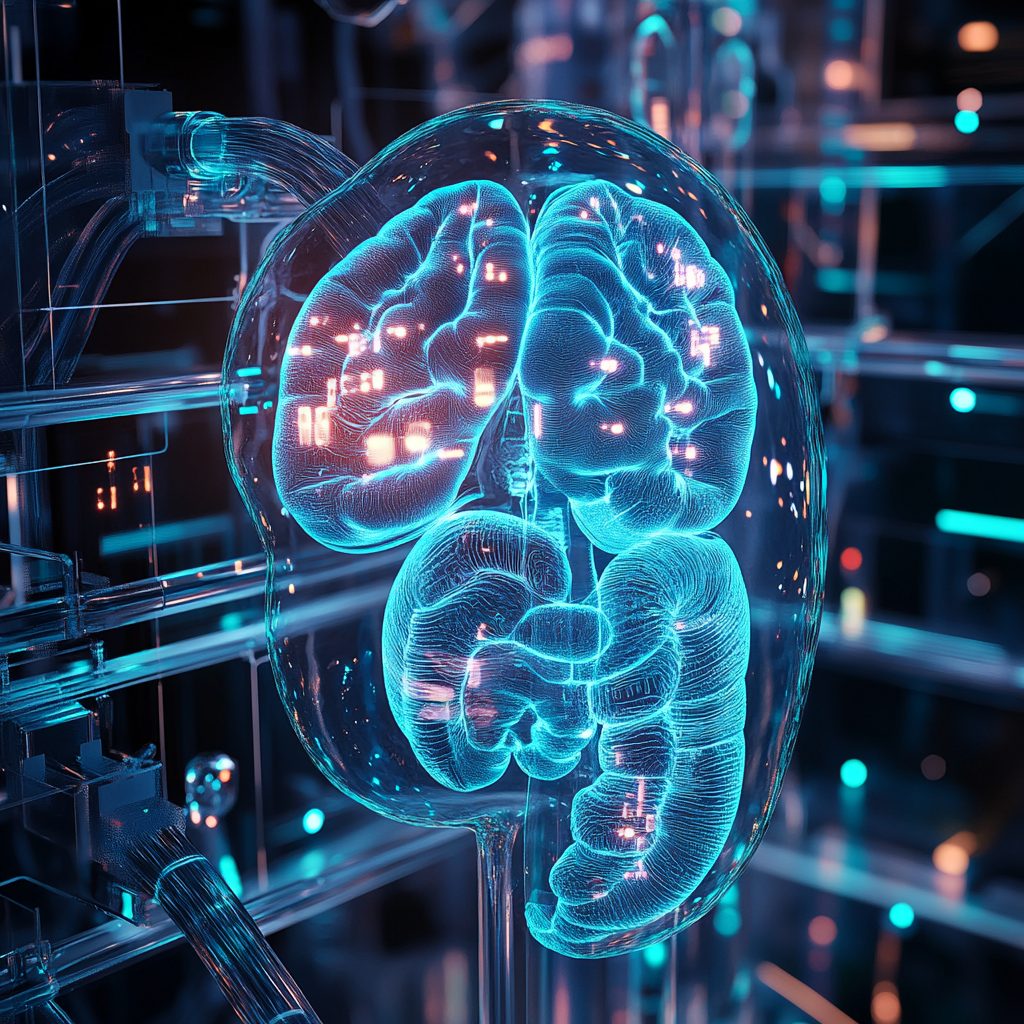
The future of organ transport logistics is bright, with promising convergence between advancements in technology and data availability. AI models are showing promising results, often outperforming classical methods in various applications.
To ensure the robustness of AI models under varying patient data, more extensive validation studies are required. Prospective studies with external validation are being planned to validate AI models in transplantation, ensuring their reliability and effectiveness in clinical practice.
The potential of emerging technologies in organ transport logistics is immense. From advanced predictive models to the integration of autonomous vehicles, these technologies hold the promise of revolutionizing the field and improving patient outcomes.
In conclusion, the future directions and emerging technologies in organ transport logistics offer exciting possibilities. By embracing these advancements, we can continue to enhance the efficiency and effectiveness of organ transplantation, ultimately saving more lives.
Integration with Autonomous Vehicles
The introduction of autonomous transportation could significantly change decision-making for organ transport logistics, enabling options like the use of self-driving cars or drones for urgent deliveries. These technologies can navigate through traffic more efficiently and maintain consistent speeds, ensuring timely delivery of organs.
More than 10% of vehicle miles in the U.S. could be covered by autonomous vehicles by 2030, which may streamline the organ transportation process. This projected increase in autonomous vehicle use highlights their potential impact on organ transport logistics.
Autonomous vehicles could enhance real-time tracking of organ deliveries, providing precise ETAs and conditions during transport for improved patient communication. This real-time tracking capability is crucial for maintaining the organ’s viability and ensuring timely delivery.
Integrating electric autonomous vehicles in organ transport could help reduce the carbon footprint of the logistics involved in organ transplantation. This environmentally friendly approach aligns with broader sustainability goals while improving the efficiency of organ transport.
Advanced Predictive Models
Advanced predictive models in organ transport logistics are designed to enhance decision-making and mitigate risks. These models take into account a wide range of factors and their intricate relationships, improving the decision-making process for organ allocation.
To address imbalanced data in kidney transplant studies, ML algorithms with hyperparameter tuning and ensemble learning are utilized. These advanced techniques ensure that predictive models are accurate and reliable, even with complex and varied datasets.
Incorporating additional patient data is essential for enhancing the accuracy of predictive outcomes in AI research. By analyzing more comprehensive datasets, AI can provide more precise predictions, improving the overall success rates of organ transplants.
Furthermore, AI may offer a more consistent model for assessing graft pathology, highlighting its capabilities in improving patient outcomes. This consistency is crucial for ensuring that organs are allocated to the most suitable recipients, ultimately saving more lives.
Bottom Line: Harnessing the Role of AI in Organ Transport Logistics for Enhanced Efficiency
The logistics of organ transport are critical to the success of organ transplantation. Efficient logistics ensure that organs are transported quickly and safely, reducing the risk of organ wastage and improving patient outcomes. The challenges faced by current systems highlight the need for optimized logistics and better coordination among stakeholders.
AI has the potential to revolutionize organ transport logistics by optimizing routes, predicting transport timing, and providing real-time monitoring. These advancements enhance the efficiency of organ transport, ensuring that organs are delivered in optimal condition and within the critical viability windows.
Ethical considerations and data privacy are crucial when integrating AI into organ transport logistics. Ensuring transparency and accountability in AI systems, along with protecting sensitive health data, is essential for maintaining public trust and confidence in the organ transplantation process.
The future of organ transport logistics is promising, with emerging technologies such as autonomous vehicles and advanced predictive models offering exciting possibilities. By embracing these advancements, we can continue to improve the efficiency and effectiveness of organ transplantation, ultimately saving more lives.
FAQs about Harnessing the Role of AI in Organ Transport Logistics for Enhanced Efficiency
How is AI used in transportation and logistics?
AI is utilized in transportation and logistics to enhance efficiency, reduce costs, and improve service quality. In organ transport logistics, AI optimizes routes, predicts delivery times, and monitors real-time conditions to ensure organs are transported within critical viability windows. This application not only minimizes delays but also enhances the overall reliability of the transport process, ultimately improving transplant outcomes.
What is the role of artificial intelligence in organ donation?
Artificial intelligence plays a crucial role in organ donation by streamlining the allocation process and improving matching accuracy. AI algorithms analyze vast datasets to match donors with recipients more effectively, optimizing organ allocation. This precision ensures that organs are allocated to the most suitable recipients, reducing the risk of rejection and improving patient outcomes.
What is the role of AI in travel and transport?
In the travel and transport sector, AI is employed to optimize routes, manage traffic flows, and enhance safety. AI-driven systems analyze real-time data to make informed decisions, improving the efficiency of transportation networks. In organ transport logistics, AI's role is pivotal in ensuring timely deliveries and maintaining organ viability during transit.
What is the role of AI in logistics and supply chain?
AI revolutionizes logistics and supply chain management by automating processes, predicting demand, and optimizing inventory management. AI-driven solutions enhance the efficiency of supply chains, reducing costs and improving service levels. In organ transport logistics, AI ensures that organs are transported efficiently, reducing wastage and improving transplant success rates.
How does AI enhance organ transplantation?
AI enhances organ transplantation by improving logistics, optimizing organ allocation, and predicting patient outcomes. AI algorithms analyze historical data to forecast potential complications, enabling proactive management and improving transplant success rates. By streamlining logistics and enhancing coordination among stakeholders, AI significantly improves the efficiency and effectiveness of the transplantation process.
Disclaimer:
Please be aware that the content on this page has been generated by using artificial intelligence language models and may contain errors, inconsistencies, or outdated information. It is provided as-is without any warranties or guarantees of accuracy. We strongly recommend using this content as a starting point for further research. We disclaim any liability for damages or losses resulting from the use or reliance on this content.